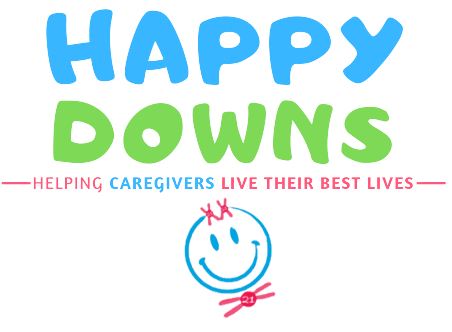According to Investopedia, a will, aka last will and testament, is a legal document that communicates a person’s final wishes pertaining to assets and dependents. Therefore, a legal will is an important document for Family Caregivers to possess to ensure that our wishes relating to our loved ones, who have Down Syndrome, are carried out. For Family Caregivers, a will is especially important as it can be used to leave assets to our loved ones and declare who we wish to be their next guardian (if applicable).
What Makes a Will Legal?
To make a will legal, the following is usually required (may vary based on your location):
- The will must be in writing (some locations may insist on it being handwritten).
- You (the one writing the will, aka the Testator) must be at least 18 years old.
- You must be mentally competent.
- You must sign it (and date it) in front of two or more adult witnesses, who are not listed on the will to inherit anything.
- The witnesses must also sign.
How to Write Your Own Will
One of the first things that may come to your mind is the fact that lawyer fees are a lot and therefore, a will is just not a priority for you right now. But, would you believe that you can write your own will…free…and make it legal?
Who doesn’t like saving money? But, first consider if those common sayings: “penny wise and pound foolish” or “the cheapest always becomes the dearest“, apply to your situation.
It is recommended that you write your will if the following are true:
- You own an average amount (or less) of assets
- Your plans for leaving your property are not out of the ordinary.
- You are not expecting a challenge from any family members/other persons.
The above conditions make for a fairly simple situation and thus, you drafting a simple will should be no problem. If the stakes are higher though, you may want to consider hiring an attorney.
You also have the option of writing the will, but then having an attorney overlook it…this usually comes at a lower cost than if you hired the attorney to write the will. By having your will examined, the attorney can point out things that you probably never thought of, but which are important.
So, if you believe writing your own will is the way to go, then you need to know the following:
- Who you will put in charge (the executor).
- How your property should be divided.
- Your local laws which determine what makes a will legal.
- Who you will assign to care for your loved one.
How to Choose an Executor
The executor is the person you appoint to carry out your wishes after you die. This person should be someone you trust implicitly, who is organized, has good communication skills and who is capable of handling paperwork and details. When choosing this person, make sure they live close by so that they can easily take care of any duties that may arise.
You should also consider drawing up a list of tasks for the executor to do immediately when you die.
An Executor can be a friend or family member. They can be someone listed as a beneficiary in your will.
Now, not all of us are fortunate enough to have persons in our lives that are willing to help or who we can sincerely trust. Thus, please note that Executors can also be Trust companies or professionals, e.g. probate solicitors, lawyers, accountants.
Your Legal Will Should Include:
1. How Your Assets will be Divided
An important consideration is the division of your family’s property after you die, which can vary based on where you live and local laws. For example, in most US states if there are no children involved, then a spouse may receive all or most of the family assets. But, if you have family…children for example…it is best to provide a detailed list of what your loved ones should receive and the percentage that they will get. This way family members won’t squabble over items or percentages unnecessarily after you die.
Usually, persons tend to leave a higher portion of their assets to their loved one who has Down Syndrome in an effort to try to provide as best as they can. Therefore, please have conversations with other family members, e.g., siblings of the person with DS, or your own children if you are a sibling; just to ensure that no one is in shock when they eventually find out just how much they are getting and how much the family member with DS is getting. Try to avoid friction at all times.
2. The Person in Charge of Caring for Your Loved One who has Down Syndrome
Consider the following:
- What sort of guardianship/trust arrangements need to be made for your loved one?
- How much money needs to go into trusts versus put directly into bank accounts?
- Who gets custody (if your loved one is a teenager)? What about visitation rights?
- You may also want to include some special requests regarding holidays, birthdays, etc.
Legal Will Tips:
- Have a family member keep a copy of the will for easy access after your death. N.B. The rule of thumb is only the original copy is valid. The original must be filed with the court. A certified copy may be used for filing other legal papers (such as to transfer title of assets).
- Only mention items specifically related to family members…to avoid family squabbles.
- Make sure all family members are aware of how much money they should receive (trust funds vs bank accounts), this way there won’t be any surprises later on.
- Ensure all future guardians are aware of and agree to their future role. Have at least two guardians listed. N.B. Simply stating the future guardian in a will may not suffice. The person may need to fill out particular paperwork before you pass on. Be sure to find out what is required by law.
How to Change a Will
It is important to review your last will and testament from time to time, not only for family changes but also local laws that might have changed since you wrote it. And if a family member has passed away then read through the document carefully in case there are any updates that need to be made.
There are two ways to amend a will:
- Create a codicil (an amendment to your will).
- Write a new one (make sure you include a statement revoking the old will and all old codicils).
Codicils are normally used to make small changes to your will, e.g., changing the executor, but a codicil may be misplaced and separated from the original will, which can lead to will challenges. Thus, most persons just opt to create a new one.
Do I Need a Legal Will?
A known issue that persons with disabilities face when it comes to family inheritance is the fact that it may interfere with them being able to receive government benefits. For example, in the United States of America, there is a limit to the amount of money that a person with a disability can possess. If they go over this limit, the person with the disability can be disqualified from receiving certain benefits and may even have to repay the government for benefits previously collected.
Thus, get informed as to your local laws and find out if leaving an inheritance for your loved one via a will is the best decision. You might find that setting up a trust is the better way to go.
We at HappyDowns wish you and your family the best as you try to plan for the future!



